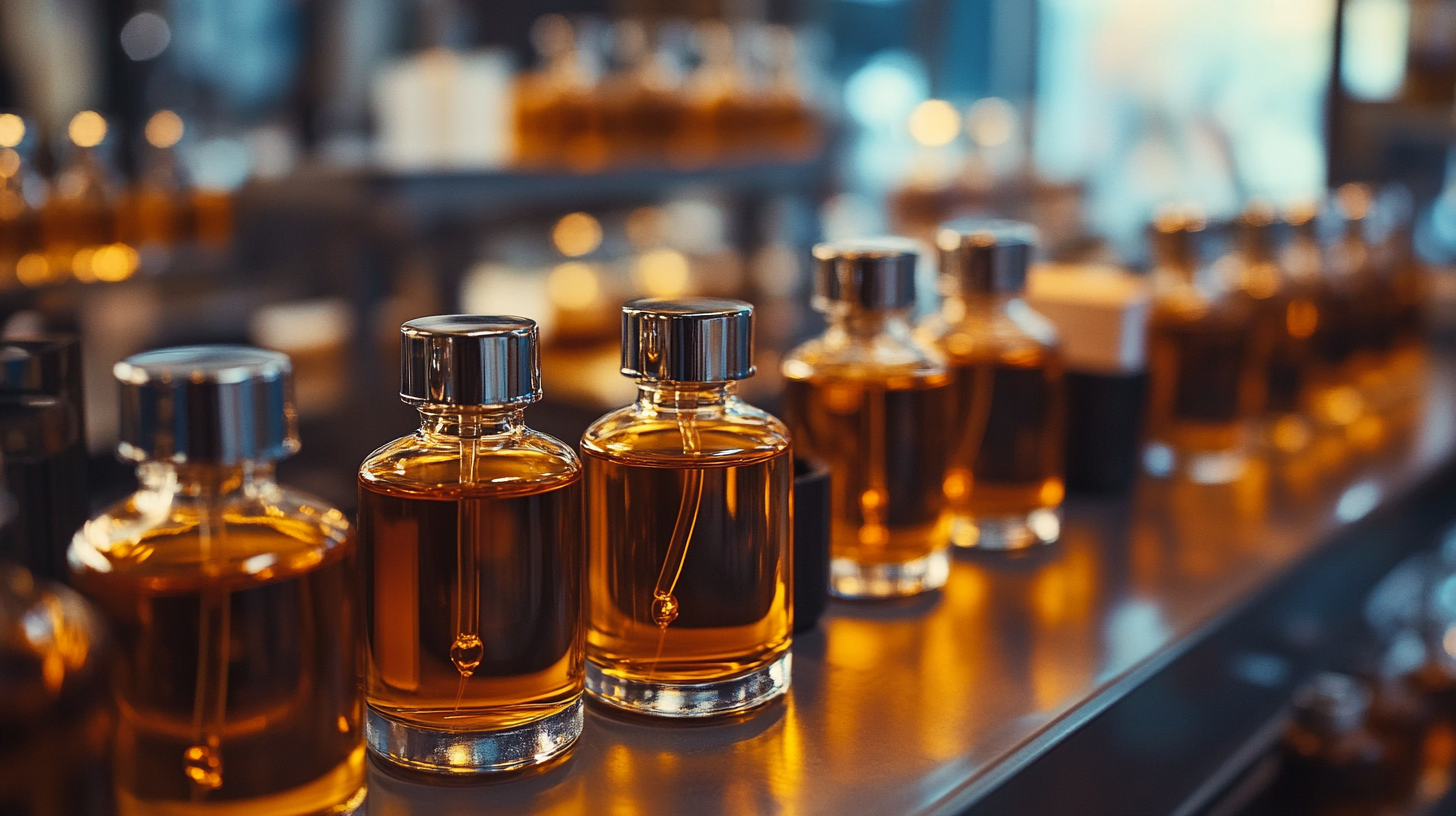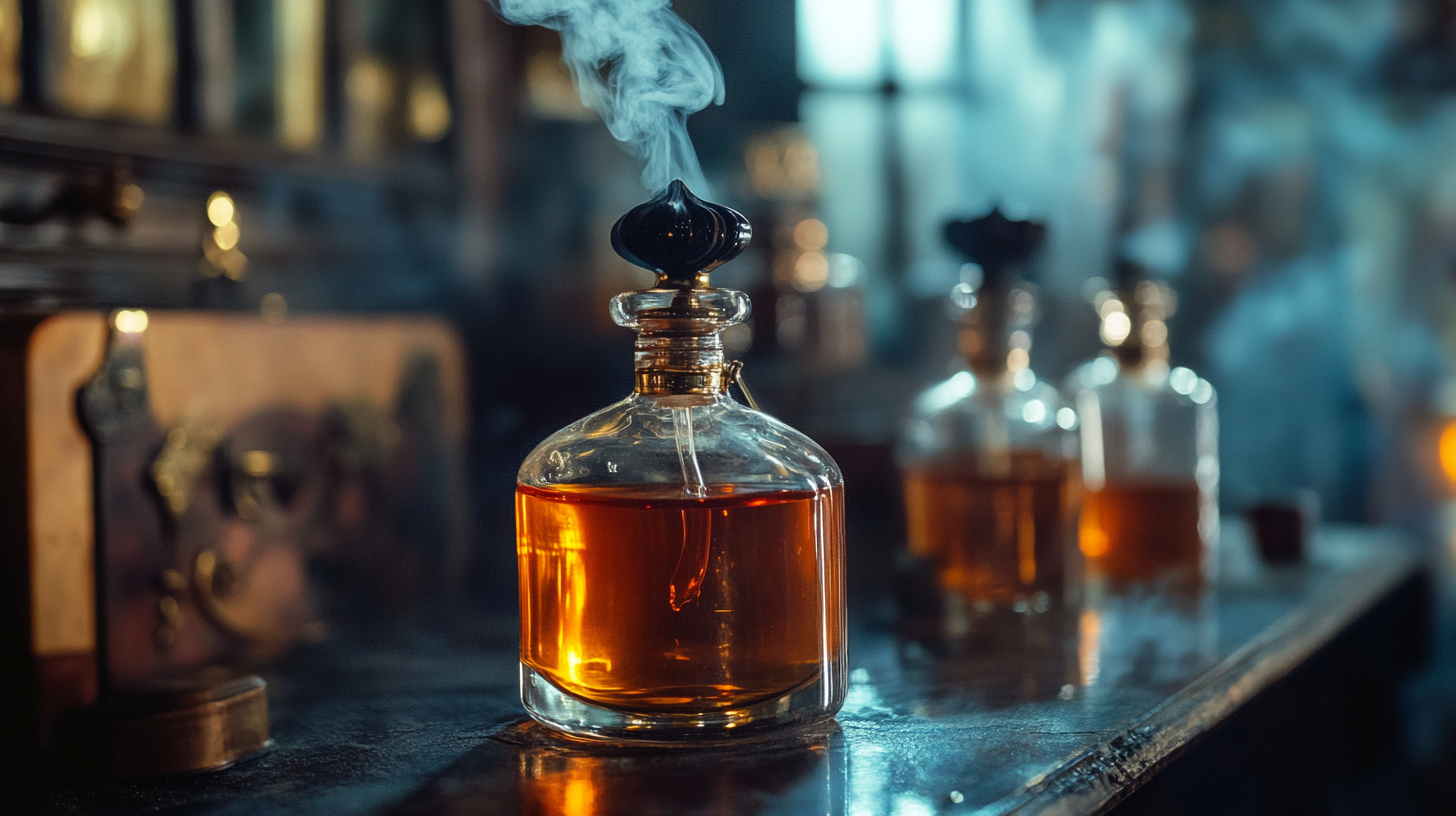
7 Secrets to Sourcing the Finest Perfume Extract for Your Business
But, if all ingredient is of poor quality, it flavor things up with cheap perfume extracts. Perfume extract is one critical ingredient that provides depth to fragrance such as scent, longevity, and appeal. While sourcing the finest perfume extract is about scent selection, it is equally synonymous with studying the various processes of extraction, fragrance families, and ethics in sourcing. For those wishing to elevate their products, one thing that could differentiate them from the rest in the market is learning the art of sourcing quality perfume extract.
This blog shall present 7 evergreen tips on how to source the best perfume extract for your business. Be it developing relationships with good suppliers or realizing the need for sustainability in sourcing, each will provide a secret necessary for maximizing your fragrance line. Thus for you, whether you are an experienced perfumer or a new business entity, knowing these keys is all about making scents, in addition, they create a brand known for its value-in-use and authenticity in quality to consumers.

Understanding the Different Types of Perfume Extracts: A Comprehensive Guide
While brands compete with one another to capture the attention of the younger, scent marketing comes as an amazing and rather untapped dimension in doing that. Companies are now creating opportunities for attracting consumers through other means as olfactory branding gradually becomes important in using consumers' visual senses. Comprehensive acceptance of perfume extracts can have a great impact on the company's perception and loyalty of consumers. Different forms of perfume extracts should be understood for tapping this potential. Perfume extracts are among the many different types that brands can consider including into their products and marketing approaches. By using essential oils, a brand can authenticate itself and appeal to environmentally conscious consumers. In contrast, an absolute extract tends to provide a highly available and lastingly concentrated scent impression. Moreover, synthetic sections allow extensive creativity and diversity within scent creation and assist in tailoring aromas for specific demographics, primarily younger audiences. Brands can create a great olfactory experience that makes a unique difference in a crowd through these different possible extracts. The new Louis Vuitton perfume expresses how much effort goes into creating a scent that suffices to an ethos of the brand; this idea applies to many other brands like Armani, who would collect his surroundings and experiences and digest them into an olfactory story. Such scents would create a deeper connection with consumers beyond appearances into sensory engagement. Indeed, this will lead to a far better emotional connection than mere aesthetics can ignite. Good use of such extracts allows the enhancement of what a brand has to offer in terms of physical products while also creating unique important contact points in each consumer's journey for ultimately deeper brand-consumer loyalty.

Identifying Quality Sources: How to Evaluate Perfume Extract Suppliers
When sourcing fragrance extracts for the business, the evaluation of suppliers is of the utmost importance in ensuring the quality and integrity of the products. The first thing, therefore, would be to research the potential suppliers and pick the ones who represent a good name in the fragrance industry. Customer testimonials, reports suggest that a reliable supplier can be expected to deliver consistent quality. You may ask for suggestions from others in the business; word-of-mouth may reveal the good suppliers.
The next step is to look for vendors who can or will tell it as is about their practices regarding raw materials and production. A reputable supplier must be able to present the origins of raw materials used and how they mix them to produce their extracts. Supplier transparency is the checkpoint beyond which you can scrutinize quality and the ethical concerns addressed. Do also enquire about their testing and quality control mechanisms. The good ones are likely to carry out thorough testing on their extracts, output quality being the hallmark of your brand's hallmark.
It could be concluded by fostering an intimate relationship with the supplier. Communication is the key in this process; raise various variations in your own requirements and preferences during several meet times. A good supplier can give leeway for the two of you to sit and chew out specifics for the fabrication of these extracts, tuned toward your brand. Building a solid relationship helps you to better understand their capacity, and as you become increasingly aware of their nature, you eventually develop trust in their product quality, which wins to get the bottom line of your business.

The Importance of Authenticity: Ensuring Genuine Ingredients for Your Fragrance
The highest importance is given to authenticity in the creation of a fragrance that charms. The raw materials that compose a perfume extract impart a scent to it, and the integrity of these ingredients renders the definition of the scent and, ultimately, the perception of the brand itself. Consumers today are far more discerning than ever, even demanding that products have an assurance of being made from genuine materials. Good sourcing of high-quality, authentic ingredients demonstrates a firm commitment to excellence, establishing a differentiating factor for brands in a highly competitive market.
In addition to improving the quality of the perfume, using real components introduces transparency and trust to the relationship customers develop with that perfume. Honoring authenticity-making an effort to be real about the materials and formulations that comprise the products-offers consumers insights into the procurement discussion. This dialog might be reinforced by detailed ingredient lists and the stories behind each ingredient, thereby lending more personal meaning to the fragrance in question. In addition, with the world's trending concerns for sustainability and ethical sourcing, brands emphasize ingredient authenticity to show they care about their operation, giving credence to this appeal.
Ultimately, the authentic perfume ingredients are no longer just a trend-now they are an important business strategy for fragrance branding. The effect of authenticity goes far beyond the bottle into consumer loyalty and satisfaction. While navigating the ambiguities in sourcing, a focus on authenticity and high-quality gets to build that brand, regarded in the light of present-day consumer values and expectations.

Sustainability in Sourcing: Ethical Practices for Perfume Extraction
The new perfume industry sustainability causes a great deal of new stimulus for perfume companies to have ethical sources for sourcing their perfume extracts. People increasingly care for the environment, so their companies must abide by the practice. Ethical sourcing, besides producing a lower environmental footprint, is also an issue of trust between brands and their suppliers.
Natural and local sourcing within the realm of sustainability is buying primary products from their local communities to bring them closer to their sourcing countries. External farmers, practicing sustainable farming methods outisde but within the same country or region, in turn contribute to biodiversity conservation while strengthening local good economies. By choosing responsibly sourced extracts from harvest forests, companies reduce carbon footprints on their products while increasing product authenticity. Moreover, the effective open supply chain allows brands to pass on the values of rich stories to consumers for every fragrance.
Another important practice is renewable resource use and extraction methods that do not destroy the environment. The environmental destruction of such techniques is much lower compared to similar synthetic alternatives. Companies that have invested in these include brands that put research and development into innovative technologies that bring down waste generation and maximize efficiency: people who are mindful of what they consume are more likely to connect with a corporation's commitment for sustainability to this extent. Thus, one hand also provides excellent raw material procurement, but the other also establishes the business as a lead in a conscious market where ethics meets aesthetics.
Building Relationships with Extract Suppliers: Tips for Long-term Collaboration
Particularly among businesses that deal with perfume extracts, good relations with the extract suppliers matter the most. This applies right from the stage where quality perfume extracts are procured. Trust and open communication can surely enhance the cooperation needed to maintain a flow of quality. This would even better work if there were reasonable understanding and ability to navigate the complexity involved in the sourcing process.
One of the most successful ways to cultivate this relationship is to create an environment that fosters collaboration, whereby suppliers feel valued. Many check-ins, feedback sessions, and open dialogues about expectations may certainly lead to a more cohesive partnership. For example, in an agreement like the recent long-term carbon credit agreement between Microsoft and Neustark, companies would enter agreements on such projects as this ones-that of mutually advantageous long-haul contracts. This secures a steady supply of extracts, but also develops loyalty among suppliers who will be more willing to do their utmost for quality and sustainability.
Joint ventures or co-development projects would be another area for exploration with suppliers. Such a strategy would drive innovation in product development while ensuring both parties have a vested interest in the success of the materials sourced. Corporate objectives may be aligned, allowing businesses to capitalize on suppliers' expertise and resource base leading to richer and more diverse offerings to the ever-evolving perfume market.
